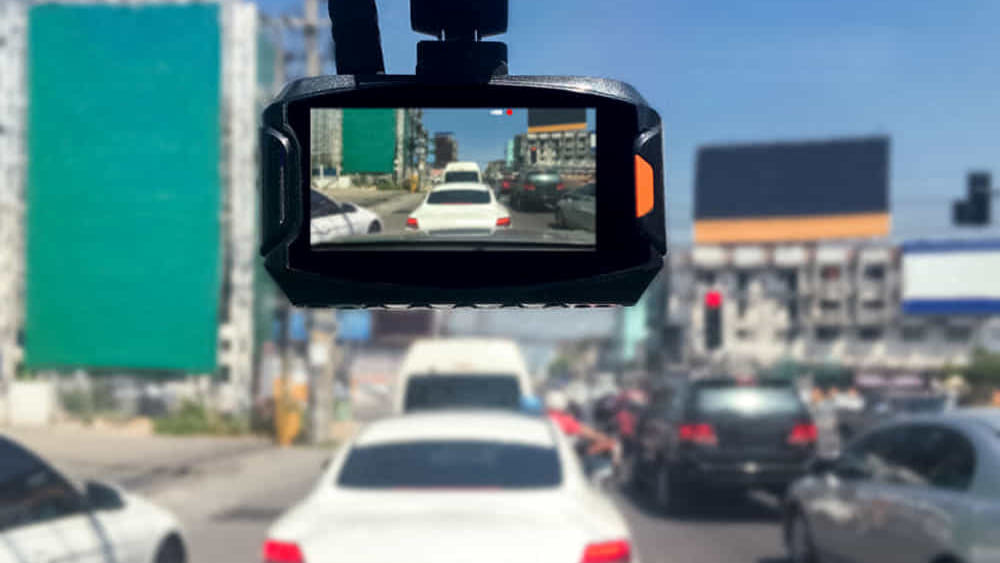Dash cams, or dashboard cameras, have become an increasingly popular safety and security tool for drivers. These cameras offer potential benefits, such as providing evidence in case of accidents, deterring theft, and recording unexpected road events. However, if you’re considering getting a dash cam for your vehicle in Pennsylvania, it’s important to understand the legal regulations surrounding their use.
Dash cams are compact video cameras typically mounted on a vehicle’s dashboard or windshield. They continuously record footage of the road ahead and sometimes the vehicle’s interior. Dash cams provide several potential benefits:
- Accident Evidence: In case of an accident, dash cam footage provides a clear record of events and helps determine fault.
- Theft Deterrence: The presence of a visible dash cam could discourage potential car thieves.
- Driving Behavior Monitoring: Dash cams can be used for self-monitoring driving habits or for fleet management to review driver performance.
- Capturing Scenic Drives: Some people simply enjoy the ability to record beautiful drives and unexpected encounters.
Legality of Dash Cams in Pennsylvania
General Permissibility
The use of dash cams is generally legal in Pennsylvania. However, there are specific regulations in place regarding their placement and the recording of audio.
Placement Restrictions
Pennsylvania law has strict guidelines on where dash cams can be mounted to avoid obstructing the driver’s view:
- Lower Right Windshield Corner: A dash cam can be mounted in the lower right corner of the windshield, but it must not occupy an area larger than 7 square inches.
- Lower Left Windshield Corner: The same restriction applies to placing a dash cam in the lower left corner – not exceeding a 5 square inch area
- Upper Center Windshield: A dash cam can be mounted in the upper center portion of the windshield, limited to a 5 square inch area.
Additionally, dash cams must not interfere with the deployment of airbags.
Audio Recording Regulations
Pennsylvania is a “two-party consent” state when it comes to audio recordings. This means that all parties involved in a conversation must be aware and give consent to be recorded. To comply with this law, dash cam users in Pennsylvania should:
- Inform Passengers: Place a clearly visible notice in the vehicle stating that audio and video recordings are in progress.
- Disable Audio Recording (If Possible): Some dash cams have the option to turn off audio recording.
Privacy Considerations
- Public vs. Private Spaces: Dash cams can generally be used in public spaces. However, there are limitations on recording people in areas where there’s a reasonable expectation of privacy, such as private property.
- Consent for Audio Recordings: As discussed, it’s essential to obtain consent from all parties before recording audio conversations inside the vehicle.
Using Dash Cam Footage as Evidence
Admissibility in Court
Dash cam footage is generally admissible as evidence in Pennsylvania courts. Its authenticity and relevance to the case must be established.
Working with Law Enforcement
Law enforcement may request dash cam footage in the event of an accident or a crime. While you have the right to refuse, cooperating with law enforcement could aid investigations. If refusing, law enforcement officers would need a warrant or subpoena to access recordings.
Best Practices for Dash Cam Use in Pennsylvania
- Choosing the Right Dash Cam: Consider these factors when selecting a dash cam:
- Video Quality: Opt for a higher-resolution camera (at least 1080p) for clearer footage.
- Storage Capacity: Choose a dash cam with adequate storage (SD cards or internal memory). Some models overwrite old footage automatically.
- Features: Features like night vision, wide-angle lenses, GPS, and motion detection can be useful.
- Audio Recording: Determine whether you need audio recording capabilities, and ensure you comply with Pennsylvania’s consent laws.
- Optimal Placement: Install your dash cam within the permitted areas on your windshield, ensuring it doesn’t obstruct your view of the road.
- Handling Dash Cam Footage:
- Regularly Review and Backup: Download important footage and store it securely (computer, cloud storage).
- Data Security: Protect your footage from unauthorized access.
Additional Considerations
- Commercial Vehicle Regulations: Pennsylvania might have additional regulations for commercial vehicles using dash cams. Fleet managers should consult legal advice to ensure compliance.
- Insurance Implications: Some insurance companies might offer discounts for drivers who use dash cams. It’s worth checking with your insurance provider.
Conclusion
Dash cams offer valuable benefits for Pennsylvania drivers, but understanding the state’s legal regulations is crucial. By adhering to the guidelines for placement, audio recordings, and privacy considerations, drivers can responsibly use dash cams to protect themselves on the road.
Sources
- Pennsylvania Consolidated Statutes Title 75 (Vehicles), Section 4524: https://www.legis.state.pa.us/cfdocs/legis/LI/consCheck.cfm?txtType=HTM&ttl=75&div=0&chpt=45&sctn=24&subsctn=0
- Pennsylvania Wiretapping and Electronic Surveillance Control Act – 18 Pa.C.S.A. § 5701: https://www.legis.state.pa.us/WU01/LI/LI/CT/HTM/18/00.057.001.000..HTM
- BlackboxMyCar: Dash Cam Laws in Pennsylvania: https://www.blackboxmycar.com/pages/are-dash-cams-legal-in-my-area-dash-cam-laws-in-every-us-state
- Donaghue & Labrum LLP: Dash Cam Guidelines and Legality – Protecting Yourself On The Road: https://donaghuelabrum.com/uncategorized/dash-cam-guidelines/
Disclaimer
This article provides general legal information and shouldn’t be considered as legal advice. If you need specific guidance, consult a qualified attorney in Pennsylvania.



